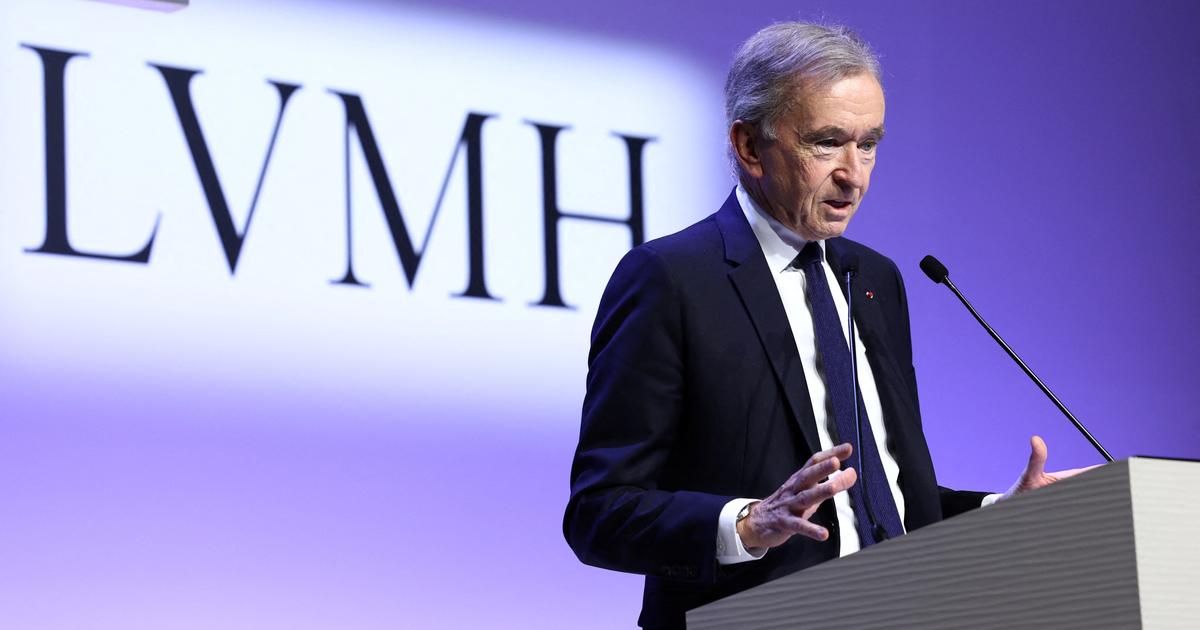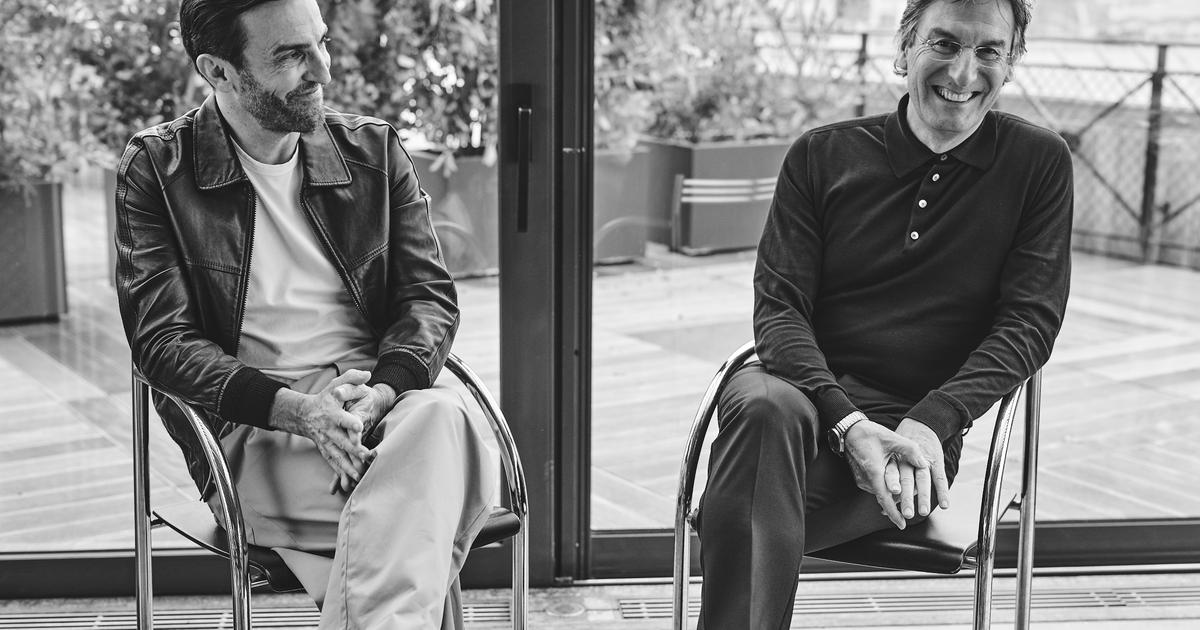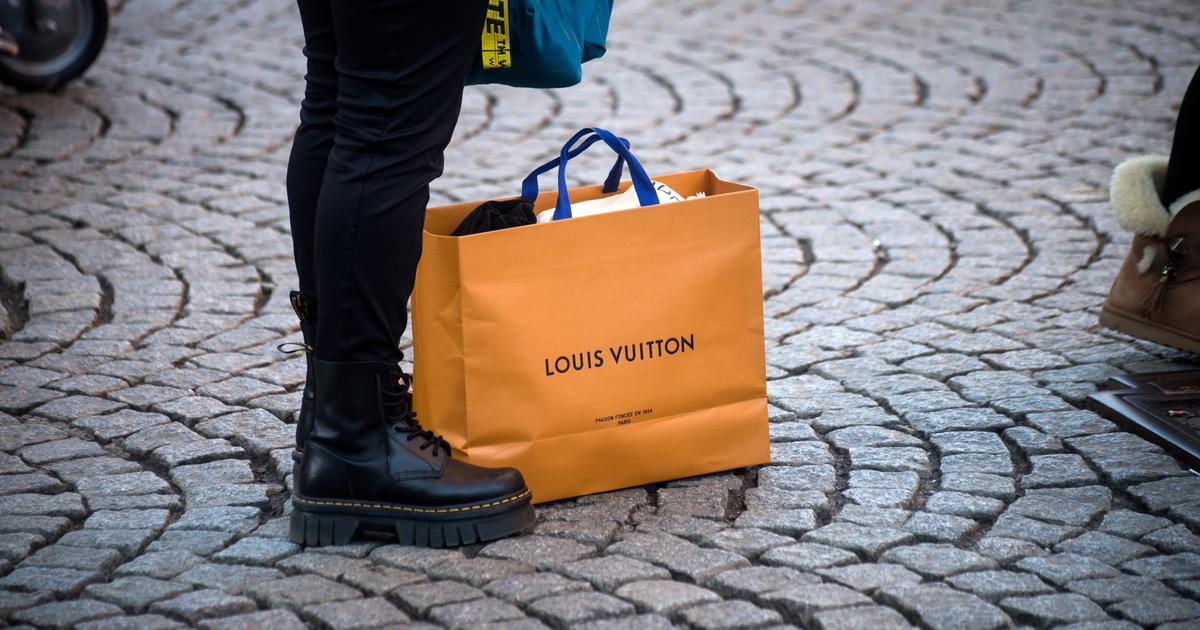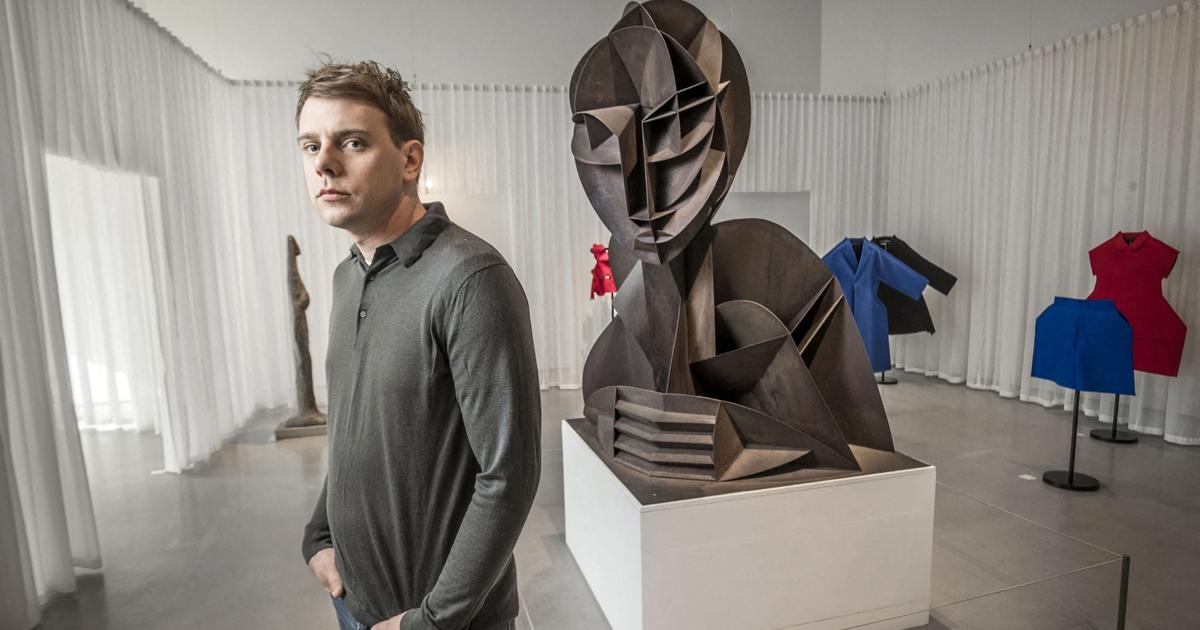The party goes on despite the crisis: champagne is currently a coveted product
Photo: AFP
While energy and food prices are skyrocketing and many companies are spoiling their annual targets, champagne corks are still popping in one industry: luxury goods manufacturers such as Dior, Cartier and Louis Vuitton have felt little of the crisis so far.
They also achieved double-digit growth rates in the first nine months of this year.
The management consultancy Bain & Company even expects a record year for the luxury sector in 2022 with growth of 15 percent worldwide.
The experts predicted that a total of 353 billion euros would be spent on personal luxury goods this year.
That is a quarter more than in the pre-crisis year of 2019.
The trend can also be seen in the sales figures for luxury brands, such as the French luxury empire LVMH.
The conglomerate includes 75 luxury and lifestyle brands with 5,600 shops in 80 countries, for which more than 175,000 people work: from Louis Vuitton, the luxury bag producer, to the Roman blacksmith Bulgari, the haute couture house Dior, and the champagne Moët & Chandon to the Cologne suitcase manufacturer Rimowa.
Sales growth of 28 percent to 56.6 billion euros was reported for the first nine months of this year.
LVMH stock hit a record high of €726 on Friday.
For comparison: In May, the share was temporarily still worth 538 euros.
LVMH boss
Bernard Arnault
(73) is particularly happy about this.
He is currently the richest person in the world, replacing Tesla boss
Elon Musk
(51), who has held the title since September 2021.
(Read more about Arnault here. )
The competitor Richemont, which brings together well-known brands such as Cartier, Montblanc and IWC under its umbrella, increased its sales between April and September by 24 percent to 9.7 billion euros.
The French luxury group Kering, with brands such as Gucci, Saint Laurent, Balenciaga and Bottega Veneta, grew by 23 percent in the first nine months of this year and achieved sales of 5.1 billion euros.
Resilience through globalization
But how can it be that the crisis is passing by?
Luxury brand expert
Fernando Fastoso
(48), holder of the endowed chair for brand management for luxury and high-class brands at the University of Pforzheim, sees three points: the global positioning of the brands, the resilience of the upper income groups against the crisis and a significant expansion of the target groups.
"The luxury market is a global market," says Fastoso.
"Problems in some national markets are offset by other markets, making it very resilient."
The industry has benefited enormously since the huge economic markets in India and China opened up.
"This was also shown during the pandemic. Because the lifting of the lockdown in China in the summer of 2020 was able to partially offset the losses from other markets."
After the lockdowns, there was also a lot of catching up to do in many countries.
During the pandemic, the industry had seen sales slumps of 20 percent in some cases.
Fastoso sees another reason for the industry's low susceptibility to crises in its core clientele.
Consumers with purchasing power have recently been less affected by the crises than consumers from other income brackets.
The aid organization Oxfam even came to the conclusion that billionaires benefited the most during the crisis years.
Their number has increased by more than 570 to 2668 people since 2020.
This group now shares a fortune of $12.7 trillion - the super-rich do not have to limit themselves financially, on the contrary.
"Luxury consumption is status consumption, and the need for status in luxury buyers is resilient," says Fastoso.
Democratization of luxury brands
The strength of the luxury brands can also be explained by what Fastoso calls a democratization of luxury consumption.
"Luxury brands have expanded vertically. There are now many products at entry-level prices for the middle class," says the expert.
"Luxury feels omnipresent today."
The French jewelry and watch company "Cartier" of the Swiss luxury goods group Richemont now sells perfume for a price of 39.99 euros - and at the same time watches for tens of thousands of euros.
"In addition, there are not only high-end luxury brands such as Cartier, Gucci and Prada," says Fastoso.
"Especially in developing countries, less expensive brands from the west are also seen as a luxury."
This attracts new customer groups.
Younger people in particular have discovered luxury brands in recent years, as the study by Bain & Company shows.
"For many luxury companies, this is now a relevant market segment," says Fastoso.
According to the study, luxury brands are now reaching customers aged 15 and over - a few years ago the figure was 20 years.
Algorithms in social media are drawing much more attention to it, explains Fastoso.
The brands are already cleverly staged in computer games such as Fortnite or Roblox.
The industry therefore benefits not least from the increased enthusiasm for luxury in the younger generations.
"Very successful marketing has been carried out here in recent years," says the expert.
The growth continues
And how does it continue?
The Bain experts are convinced that the sales of the luxury manufacturers will continue to rise in the coming years, despite the risk of a recession - albeit at a slower pace.
The luxury market will no longer have the double-digit growth rates in the coming year as it did in 2021 or 2022, agrees
Achim Berg
, business expert for luxury companies at the management consultancy McKinsey.
He assumes that the luxury manufacturers will also prove to be very resilient in a recession, but: "They too will feel the declining consumer appetite in the population."
"Whoever says that rich people always have money, and that's why luxury will continue, is making it a bit too easy," says Berg.
That's true at the upper end of the luxury segment - but not in the area in which the brands have expanded in recent years.
Berg believes that the second-hand market for luxury items could benefit from the looming recession in the near future.
"The desire is there. People want to continue buying luxury items, even when money is tighter."
For many people, luxury products are a means of self-expression.
"They won't want to do without that, even in the recession."
In the long term, the luxury industry sees itself on the upswing anyway.
The experts at Bain expect global sales of personal luxury goods to increase from around 353 billion euros at present to up to 580 billion euros by 2030.







/cloudfront-eu-central-1.images.arcpublishing.com/prisa/HUQRVUYDQVBNVAEHMCGNYB5QNU.jpg)

